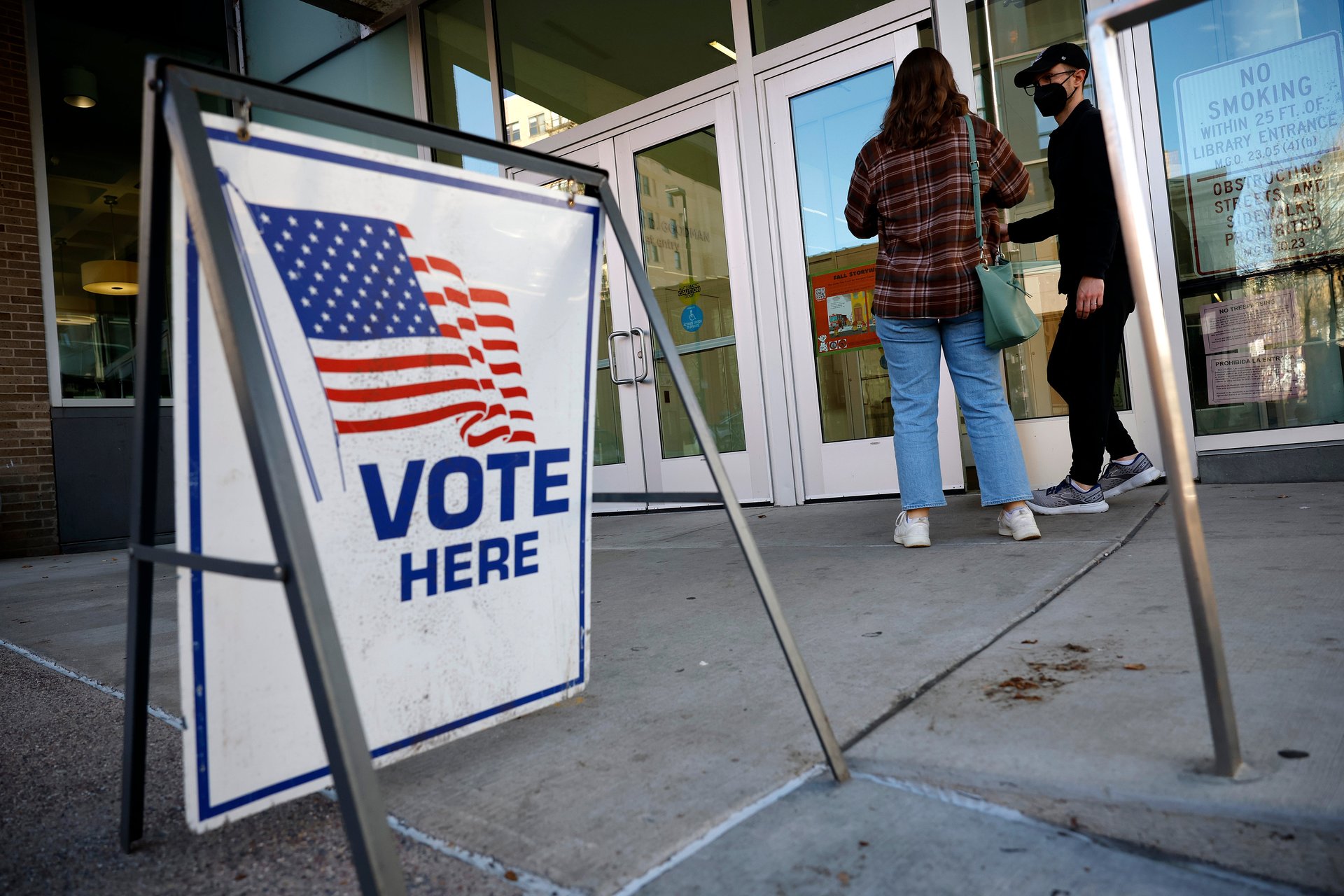American billionaires’ political spending overwhelmingly leans Republican
A record-breaking $881 million were donated by the country’s 465 richest people

American billionaires reached further than ever into pockets this US midterm election, and they overwhelmingly gave to Republican candidates.
Suggested Reading
Of the record-breaking $881 million billionaires have donated to US political parties this midterm election cycle, nearly three-quarters came from the top 20 donors alone. Of these 20 who rank among the wealthiest population—who became even richer during the pandemic—14 back Republicans, a new report from the non-profit organization Americans for Tax Fairness calculates.
George Soros, America’s biggest billionaire political donor this midterm election cycle, is an exception to the trend. The Hungarian-born American billionaire gave over $128 million to Democrats. The largest chunk of his donation—$125 million—went to Democracy PAC II, a political action committee (PAC) Soros created in 2019 to support Democrats’ efforts in the 2020 election.
Charted: American billionaires lean Republican
More billionaire money is fueling politics than we know
Although Super PACs can take unlimited donations from each donor, they must report the sources of their funds. Instead, “dark money” groups, which appear as social welfare organizations, unions, and trade associations in the revenue code, can pump money into competitive congressional races on a billionaire’s behalf, the Americans for Tax Fairness report states. They will have to disclose the amount donated but, as long as endorsing politics is not the group’s primary purpose, it does not have to reveal donors’ names.
As of Sept. 30, nearly $120 million flowed from social welfare organizations to four congressional super PACs. “This kind of cash is not raised in small amounts, especially by organizations invisible to ordinary Americans,” the report says. “Billionaires and other rich people and organizations recruited by political operatives are the most likely source of funds.”
The problem with billionaire election spending, in senator Bernie Sanders’ words
“Billionaires are saying, ‘Hey, we own the country, we may as well own the political system, and I’m going to elect you and I’m going to defeat you.’ That ain’t democracy, that’s oligarchy,” —Bernie Sanders at a rally in Philadelphia on Nov. 6
Election funding, by the digits
7.4%: Billionaires’ contribution to all money raised by federal candidates, political parties, and political action committees (PACs)
$100 million: How much billionaire developer Rick Caruso, who is running to become the next mayor of Los Angeles, has poured from his own fortune in his race
16.7 billion: Total cost of federal and state election funding this cycle, which shatters all records
30: Age of the youngest billionaire donor on the list, crypto magnate Samuel Bankman-Fried’s age. The T-shirt-donning, Toyota Corolla-driving billionaire has spent around $40 million on PACs this year.
66%: Support for potential limits on billionaires’ political spending, according to a poll of 2,000 registered voters
Person of interest: Netflix’s Reed Hastings
The trend among the CEOs of America’s biggest public companies is similar to that of the country’s billionaires—they lean Republican, although they sign smaller checks.
The majority of the top brass at S&P 500 companies have contributed millions to the Republican party, according to MarketWatch’s analysis of Federal Election Commission data. Of that group, Netflix’s co-founder and co-CEO Reed Hastings has splurged the most in the current midterm election cycle.He gave $3.05 million to Democrats, like Soros and unlike most other CEOs.
The biggest outlays by Hastings were $2 million for the Senate Majority PAC and $963,000 for the House Majority PAC—two democratic outfits fighting to help the party retain control of each chamber of Congress.
Blurred lines between personal politics and corporate ideologies
Some donations by corporate heads align with their corporations. Hastings’ Netflix tends to have a left-leaning viewership. Big oil has always favored Republicans, so Chevron’s CEO donating red makes sense.
Billionaire mega-donor Peter Thiel has been spending time and money backing candidates who deny the legitimacy of Joe Biden’s presidency, undermining the democratic process. But his company’s stance isn’t as staunch: On one hand, Paypal recently deactivated the account of a pro-democracy group in Hong Kong. But it also blocked the site that helped raise funds ahead of the January 2021 Capital Hill riot.
Meanwhile, Nike is on the complete other end of the spectrum. Co-founder Bill Knight is pouring millions to back an unaffiliated candidate, former state senator and pro-gun rights candidate Betsy Johnson, whose race for governor in Knight’s home state of Oregon is seen as giving pro-Trump, anti-choice Republican nominee Christine Drazan a better shot at winning in the usually blue-leaning state. As Rolling Stones explains, Knight’s Nike, which is seen as a progressive brand, is at odds with both Johnson and Drazan on issues such as condemning racism, tackling climate change, and abortion right.
Related stories
🤑 Economic pessimism about inflation and recession chips away at the Democrats’ midterm hopes
